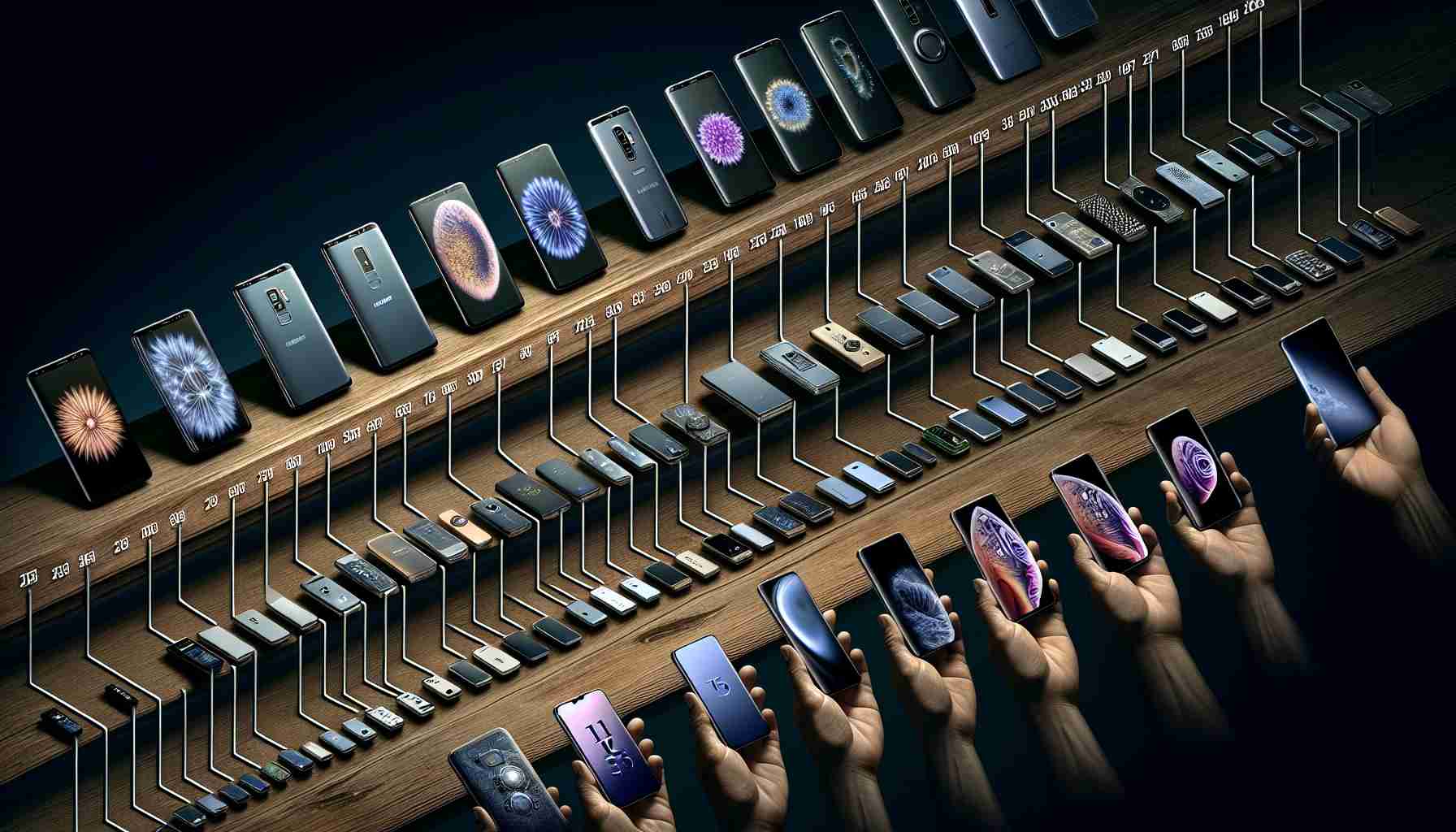Samsung has outstripped its competitors in the smartphone arena by shipping nearly three billion units over the past ten years, marking a significant lead against Apple and outpacing a collective of Chinese giants including Xiaomi, Huawei, and Vivo. This striking figure accounts for shipping one-third more smartphones than Apple and surpassing the combined shipments of its closest Chinese contenders by a considerable margin.
Despite sitting at the throne of Android shipments since the platform’s inception, Samsung’s grip has visibly loosened as it faced a steady erosion of its market dominance, a decline from controlling almost one-third of the market to merely a fifth over a decade. Conversely, Apple, the Cupertino-based tech heavyweight, has seen its market footprint grow to capture more than 17% of the global stage.
Clearly, the landscape of the smartphone market is rapidly evolving, with Xiaomi making aggressive strides to close in on Apple, and Chinese brands like Transsion and Oppo carving out their own significant slices of the pie. These dynamics paint a picture of an increasingly fragmented and competitive market.
While the early 2010s heralded Samsung’s dominance, with yearly shipments peaking at 292.3 million units, the trend took a downturn, cumulating in an 18% drop by the close of 2022. Oppositely, Apple’s sales trajectory symbolized resilience and growth, rallying from declines to hit an all-time high yearly shipment in 2022.
In the face of slipping sales volumes industry-wide, not least due to sustained global challenges and consumer demand fluctuations, Samsung and Apple continue their titanic clash in the market, with the South Korean giant vowing to unleash the full potential of its Galaxy S24 Series and retake its crown. A move that underscores the unwavering race for innovation and market supremacy between these technological forerunners.
Important Questions and Answers:
– Q: What has allowed Samsung to dominate smartphone shipments over the past decade?
– A: Samsung’s success in smartphone shipments can be attributed to a combination of factors like their broad product range catering to all market segments, strong distribution and manufacturing capabilities, and significant investments in marketing and innovation.
– Q: What challenges does Samsung face in maintaining its market position?
– A: Samsung faces challenges such as increased competition from Chinese manufacturers, market saturation in many regions, fluctuating consumer demands, and the need to continually innovate to retain customer interest in a highly competitive environment.
Key Challenges and Controversies:
Samsung’s market share erosion is in part due to the rise of Chinese smartphone manufacturers, which offer competitive specs at lower prices, appealing to cost-conscious consumers, particularly in emerging markets.
Moreover, Samsung has been embroiled in various controversies, such as the Galaxy Note 7 recall in 2016 due to faulty batteries leading to fires, potentially undermining consumer trust. This incident reflected the challenges of maintaining quality control and brand reputation in the face of rapid expansion and competition.
Advantages:
– Wide range of products catering to various consumer segments.
– Strong brand recognition and loyalty established over many years.
– High investment in research and development for product innovation.
Disadvantages:
– Competition with lower-priced models from Chinese manufacturers.
– Market saturation leading to diminishing returns in established markets.
– Periodic controversies and product issues that may affect brand perception.
If you are interested in more information about Samsung and their range of products and innovations, please visit their official website at Samsung.com. For a broader view of their involvement in the tech industry beyond smartphones, the same link should provide a gateway to their electronics and home appliances.
The source of the article is from the blog publicsectortravel.org.uk
